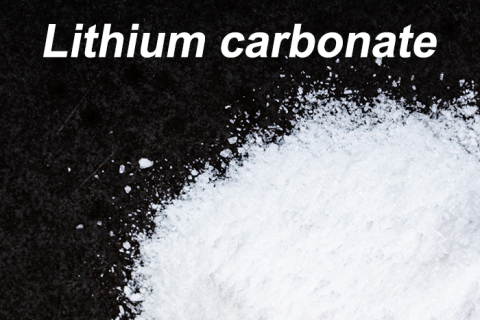
- Home
- >
News
For manufacturers of dry mix mortar, rapid-setting materials, and specialty cement products, Lithium Carbonate has become an important construction chemical additive.
The construction industry in South Korea faces increasing demands for high-performance, durable, and environmentally friendly materials, especially in:
In modern construction material production, lithium carbonate is often introduced as a performance-enhancing component, helping manufacturers meet higher requirements for durability, stability, and processing efficiency.
In modern flooring systems, self-leveling mortar is widely used to create smooth, flat, and high-strength substrates. To meet the growing demand for fast installation, stable performance, and long-term durability, lithium carbonate self-leveling mortar has become an important formulation trend. Lithium carbonate offers strong chemical reactivity in cement-based systems, making it valuable for improving setting speed, flowability, overall workability, and floor durability.
For precast concrete engineers, production efficiency and product quality are two core metrics.
In the hot and humid climate of Southeast Asia, concrete and various Building Materials are highly susceptible to a common and frustrating phenomenon: efflorescence. This white crystalline substance not only severely impacts the aesthetic appeal of Building Materials but also hints at potential structural weaknesses within the material. Traditional surface-level treatments often fail to provide a lasting solution. Our Lithium Carbonate, as a highly effective Concrete Additive, is fundamentally changing this by offering durable, intrinsic protection for concrete projects in the region.
In the modern construction industry, the demand for building materials goes beyond just strength and durability; it also includes lasting aesthetic appeal. However, a common and frustrating flaw in concrete and masonry products—efflorescence—often compromises a project's final look. As a professional concrete additive manufacturer, we're dedicated to providing an innovative solution that tackles this stubborn performance flaw from its root.
As a Chinese chemical materials manufacturer, we provide high-quality Lithium Carbonate products as a professional additive for concrete and mortar. In modern construction, there is a growing demand for improved early performance of materials, and lithium carbonate effectively addresses these challenges.
In modern construction, high-performance materials are key. From durable tiles to energy-efficient glass, innovation relies on quality chemicals. Lithium Carbonate (Li2CO3) is crucial in building ceramics and architectural glass production, enabling superior performance and sustainability.
Lithium carbonate (Li₂CO₃) accelerates early hardening in cement, enabling rapid construction and durable structures.applications like rapid-setting concrete for construction and lithium-enhanced concrete for infrastructure.
This article explores how lithium carbonate is used in construction applications, its benefits, and why it is becoming a preferred additive for advanced infrastructure projects.
In fast-paced construction, concrete set accelerators are vital for rapid project completion. Lithium carbonate excels as a non-chloride concrete accelerator, offering quick setting and high early strength for applications like shotcrete and precast concrete.












